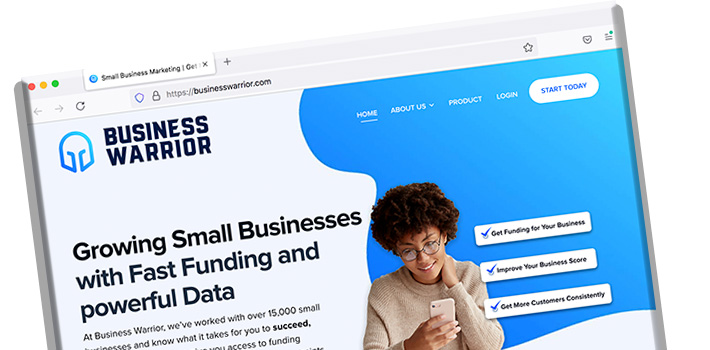Fintech
Ocrolus Meets Lendflow
August 19, 2022 Fintech infrastructure company Ocrolus has joined forces with Lendflow, an embedded credit platform to make it easier and faster for lenders, fintech companies, and SaaS companies to offer credit.
Fintech infrastructure company Ocrolus has joined forces with Lendflow, an embedded credit platform to make it easier and faster for lenders, fintech companies, and SaaS companies to offer credit.
“Ocrolus is a part of Lendflow’s platform,” said David Snitkof, Head of Analytics at Ocrolus. “So, if a lender is using Lendflow, they have the ability to then use Ocrolus through Lendflow and be able to automate the digitization of documents, automate the credit analysis that we do on those documents, automate cash flow analysis of small business borrowers, and make it very, very easy to seamlessly take all of the analytics that Ocrolus generates and puts them into Lendflow’s Decision Engine to facilitate good and speedy decisions.”
Lendflow allows for a wide range of companies to create digital lending experiences to help them grow.
“It’s really tailored to what the users of that product wants to do and the proprietary data that relates to the users of that product, all that kind of stuff,” said Snitkof. “And, it enables Lendflow customers to do a couple things. It enables them to provide a more holistic customer experience, but it also provides them another way of monetizing their software products and their customer experience.”
The two companies, Ocrolus and Lendflow, found an easily integrated synergy between their products. Lendflow’s decision engine allows their clients to be exposed to Ocrolus’ data, analytics and features and later decide which basis they would like to create approval for.
“So, they can say, ‘hey, I want to get these 20 different fields from Ocrolus whenever an application comes through and now I’m going to choose, you know, this field and this field and this field’ and set different thresholds and different criteria for who gets approved and how they get approved and what kind of line they get, what kind of price they get, depending on the results of that data,” said Snitkof.
Ocrolus has quickly expanded and helped process more than 200,000 small business applications monthly. And with their new collaboration with Lendflow it will allow them to help lenders make better decisions.
“We take a lot of pride in taking this world of data, and providing it to our customers in an efficient way, in a highly structured way, in a trusted way. And ultimately, with really good analytical insights to help them make a high-quality decision,” said Snitkof.
Is Your Big Brand a Bank? You Can Turn it into One
August 16, 2022
“Any entity that has employees, customers, and fans can create a banking infrastructure that looks just like a bank,” said Yuval Brisker, Co-founder and CEO of Alviere. Founded in 2020 as a spinoff of Brisker’s previous firm, Mezu, Alviere is ringing in the next generation of fintech through its embedded finance solutions.
Brisker wasn’t talking about turning the corner diner into a bank, but rather about providing the infrastructure to enable the largest companies and brands in the US to be one-stop shops for financial services, including banking.
“[It could look] like a bank in every sense,” he said, “FDIC insured, providing a savings account with yield, being able to ultimately give them a credit card, that is not a co-branded credit card, but it’s a single brand…”
Alviere has already spent loads of time dealing with the hard parts, building the tech, but also navigating the regulatory framework to make this concept a reality.
“We are a 100% regulated entity, meaning we’re not piggybacking on a banking license,” Brisker said. “We are actually licensed across the United States in every state that takes a license (except Montana). We are licensed with the federal government in Canada and Quebec and in the English speaking provinces, we’re in the process of completing our licensing in Mexico, and in Europe and in the UK.”
Brisker says this proactive approach is a “big differentiator” against the competition because they really want to provide the full services end-to-end. And that’s a big range given that it spans from bank accounts to payments to cards to cryptocurrency.
 In making this possible, partnerships are key. Alviere has multiple bank partners across the globe, the company claims, one among them being Community Federal Savings Bank in the US. Alviere even solidified a deal with Coinbase back in March that enables brands to provide crypto services to their customers all through their own branded technology.
In making this possible, partnerships are key. Alviere has multiple bank partners across the globe, the company claims, one among them being Community Federal Savings Bank in the US. Alviere even solidified a deal with Coinbase back in March that enables brands to provide crypto services to their customers all through their own branded technology.
Retail customers might not ever know the name Alviere because they remain in the background, Brisker explained. The brands would, but the customers would only see themselves interfacing with the brand, which is basically the whole point.
“We tell [brands] those customers will never be our customers,” Brisker said. “We’re never going to take over the customer relationship.”
Larger companies have probably entertained this whole idea at some point already, according to Brisker. The potential to capitalize on a loyal customer base by trying to offer them financial services is increasingly being looked at.
“If you’re one of those companies and you also look at the same time how difficult it is to get into this business, both from a regulation, an ecosystem, and a technological point of view, then you’re probably putting that on your back burner and saving this for another day,” he said. Alviere, however, can make this a reality right now.
“We have all the contracts, we have all the relationships, you just need to have one point of contact, one API, one relationship, one contract, and that’s us,” Brisker said. “And we take care of everything else.”
But perhaps it’s all a big bet, because would customers actually use financial services offered through non-bank brands that they’re fans of otherwise? Technically, they already are.
When Alviere launched two years ago, more than 1 out of every 2 Americans had already used a Buy-Now-Pay-Later (BNPL) service, an embedded financial concept that’s taken off around the world. BNPL sales amounted to $100 billion in 2021 in the US alone.
“We believe that there’s a huge opportunity for more traditional beloved and essential brands to become the financial service providers for [people] coming of age,” Brisker said. “And then of course there’s a huge unbanked population that for whatever reason has not entered the financial system here and abroad, which we think that through the affinity with sort of less foreboding, less anxiety, stress-ridden relationships like some people have toward banks that they will be more inclined to come into the financial system through the back door of the system, the front door of the brands they already know and patronize.”
Upstart Has Quietly Entered the Small Business Lending Market
August 9, 2022 Upstart, once known as the AI-fintech lender for student loans, has gradually added products over time. Today, the company has entered the small business lending market, making good on the plans it announced last year.
Upstart, once known as the AI-fintech lender for student loans, has gradually added products over time. Today, the company has entered the small business lending market, making good on the plans it announced last year.
Launched shortly before the close of the 2nd quarter, Upstart CEO Dave Girouard said during the earnings call that “We’ve already seen some more than 40 small business loans originated, totaling more than $1 million in principal in just a few weeks.” He further added that the company is “well ahead of schedule” in terms of rolling the program out.
“That team is quickly ironing out operational issues with an eye toward rapidly expanding this product in the coming months and years,” Girouard stated.
Previously, Girouard acknowledged that small business lending is becoming a crowded field.
“While there is no shortage of credit options to business owners, we aim to deliver the zero-latency affordable credit solution that modern businesses require,” he said last year.
There is a lot on the line for Upstart with this new product. Its core consumer lending business experienced a setback in the 2nd quarter when revenues declined on weaker demand for loans originated through its marketplace.
“In the last few months, lenders and institutional credit investors reacted more quickly and abruptly than we anticipated,” Girouard said. “Despite the fact that our bank partners have seen consistently strong credit performance, meaning portfolios performing at or above plan across quarterly cohorts, several of them have paused or reduced originations due to fear about the future of the economy.”
Turning Businesses into Funding Warriors
July 27, 2022 The downside to offering any small business a loan to grow is that they might not necessarily know how to do the growing part. And so for years, that’s what a Tempe, AZ headquartered company called Business Warrior had been focused on, helping small businesses grow and become more profitable. If businesses needed funding, Business Warrior could certainly provide that too, but the key was in maximizing the value of that.
The downside to offering any small business a loan to grow is that they might not necessarily know how to do the growing part. And so for years, that’s what a Tempe, AZ headquartered company called Business Warrior had been focused on, helping small businesses grow and become more profitable. If businesses needed funding, Business Warrior could certainly provide that too, but the key was in maximizing the value of that.
It all seemed a swell fit until the company became further intrigued by the value proposition of one of its vendors, Alchemy, an “embedded finance” company headquartered in nearby California. deBanked had interviewed Alchemy CEO Timothy Li via Zoom back in August 2020 and the tech company had only grown since then. After reconnecting in April of this year, Li described Alchemy as the “Salesforce of embedded finance.”
Embedded Finance sounds altogether buzz-wordy, but Business Warrior smelled opportunity. In June, Business Warrior announced that it had acquired Alchemy. Since then, Alchemy’s Li has become a warrior and he is working hard to roll out Business Warrior’s next generation of products.
Among the first on the horizon is an Alchemy specialty, giving small businesses the tools to become lenders themselves. It sounds like Buy-Now-Pay-Later, and to an extent it is, but the difference is that a furniture store, doctor’s office, or repair shop would be the one extending the credit, not a faceless third party on Wall Street hoping to win big.
Li explained the advantage of this by using a doctor’s office as an example. “So the creditors, the banks, don’t understand [the customer] just from reading the credit report, but the doctors understand them, they’re local people, they might have seen this patient before,” said Li. “Now [that patient] wants to do a $10,000 procedure and nobody under the sun will underwrite them.” When this happens, the doctor’s office might try to arrange some type of private financing arrangement, “but they don’t have the software to do it,” Li stated.
 Business Warrior’s software solves this. The platform will be free for the business and Business Warrior will process the customer payments, which is where they’ll earn their revenue, on transactions fees.
Business Warrior’s software solves this. The platform will be free for the business and Business Warrior will process the customer payments, which is where they’ll earn their revenue, on transactions fees.
In one respect it reduces two risks for the business: (a) A third party BNPL lender dictating future approval, supply, and cost of financing, and (b) credit card companies cutting the lines of their customers that they would otherwise normally use to pay for services. The downside, so to speak, is that the business itself is tasked with being its customers’ creditor.
But ultimately, just like BNPL, such a service is likely to lead to a boost in sales, which is what Business Warrior’s mission had always been from the start.
“This tool is a tool for the small business to do more business,” Li said.
The Alchemy name will remain as far as Li knows, because they still have a lot of customers using its original products. Day to day now, Alchemy is also working with Helix House, an online marketing company that Business Warrior also acquired. They’re all leveraging each other’s resources.
Li concluded the interview by sharing a recent real world experience, he himself going to a dental office to get some work done.
“They have every single imaginable technology, schedule appointments, all the tech,” he said. “They don’t have something that manages payments. It’s either a credit card, cash, or it’s nothing.”
Referring to the financing capabilities that Business Warrior can bring to the table in those very circumstances, “I feel like it should have been there already.”
Merchant Loses Whole EIDL After Attempting to Earn High Yield On It
July 25, 2022 It’s a tale of Covid EIDL relief gone wrong. A small business owner in Colorado Springs, CO is begging for his funds back after taking the entire lump sum of his EIDL funds ($525,000) and depositing them with a high-yield non-FDIC insured cryptocurrency tech company. The tech company, Celsius, declared bankruptcy less than two months later, yanking the merchant’s EIDL funds with it. Celsius was not a bank, the arrangement not a true deposit account, and the funds not FDIC-insured.
It’s a tale of Covid EIDL relief gone wrong. A small business owner in Colorado Springs, CO is begging for his funds back after taking the entire lump sum of his EIDL funds ($525,000) and depositing them with a high-yield non-FDIC insured cryptocurrency tech company. The tech company, Celsius, declared bankruptcy less than two months later, yanking the merchant’s EIDL funds with it. Celsius was not a bank, the arrangement not a true deposit account, and the funds not FDIC-insured.
In a letter submitted by the merchant to the bankruptcy court, he says that he deposited the funds there to “earn an APY to help pay back the 3.9% on the loan…” He further added that he believed his account to be safe because of the site’s Terms of Use.
“The funds in my Celsius Custodial account are not mine, they are the US Governments and I my entire business is secured and backed by these funds,” he wrote. “If they are not returned, my business would go bankrupt, my 15 employees would be let go, and 14 years of my life’s work lost and at the age of 49 years old, I would have to start over with nothing.”
Prior to the bankruptcy, Alex Mashinsky, Celsius’ CEO, oft touted the phrase: “banks are not your friend.”
A Code “Quiltt” for Fintechs
July 18, 2022 It’s called Quillt, a low-code tool that allows companies to integrate with several third-party services to either pull in datasets or act on data.
It’s called Quillt, a low-code tool that allows companies to integrate with several third-party services to either pull in datasets or act on data.
Quiltt says their tool detracts the need for companies to hire costly engineers to integrate their services one at a time. In doing this it allows for data to be accessed instantly by “abstracting away” the need for any organization to integrate with services one at a time and “right the business logic” required to each individual service into a single integration.
“So, with us, regardless of who’s in your data stack, we can essentially have a backend that processes all that information so you can focus on whatever your core focus is at the end of the day, as opposed to repetitive data, plumbing, and infrastructure,” said Mark Bechhofer, Cofounder & COO.
The low code aspect of it is modules with just a couple lines of code that anyone can paste into their application and embed a frontend experience. Startup companies that are looking to build in fintech with small teams and little funding could also seek assistance through Quiltt, according to Bechhofer. It could even be a bank or a credit union that wants to focus on their core competency and not worry about adding commoditized feature sets that their competitors already have.
“We are issuing cards and processing transactions, we are really doing the data intelligence around money,” said Bechhofer.
Before Covid, Bechhofer and business partner Ruben Izmailyan were selling a white label suite of DFM apps to banks and credit unions. The two business partners were often asked how they had built this backend infrastructure to take in data from “disparate sources” and combine it, analyze it, standardize it and make sense of it.
“We realized that was actually a much larger market with potentially a much larger play. And so we kind of ripped apart our old application into what I call like a Lego box and fintech infrastructure, and pivoted the company into what it is today,” said Bechhofer.
Driven by the mission of bringing financial wellness to as many people as possible, the team at Quiltt is excited about the possibilities ahead.
“We think that providing this new abstraction layer of technology will empower many new types of fintech builders and essentially give license to folks who maybe aren’t full time data scientists or engineers without worrying about hiring expensive teams. We’re really excited about what people might build on our platform that we haven’t even envisioned,” Bechhofer said.
Fintech Lender Signals That Capital Markets Are Worried
July 11, 2022 Concern about the economy is real. Upstart, the publicly traded online consumer lending marketplace, is noticing such a shift that it felt compelled to publish a sneak peek of its Q2 earnings. And it’s not good.
Concern about the economy is real. Upstart, the publicly traded online consumer lending marketplace, is noticing such a shift that it felt compelled to publish a sneak peek of its Q2 earnings. And it’s not good.
“Inflation and recession fears have driven interest rates up and put banks and capital markets on cautious footing,” said Dave Girouard, co-founder and CEO of Upstart. Girouard followed that by saying that its marketplace is “funding constrained,” a challenge “largely driven by concerns about the macroeconomy among lenders and capital market participants.”
Originations in Q2 were down as a result.
Though the company is still optimistic that its risk models will perform, the economic headwinds come just as it was beginning to roll out its new small business lending product.
In May, Girouard said that their small business loan pricing model would include more than 500 variables about both the applicant and business.
“It will also feature our loan month modeling framework, which is one of the most impactful innovations added to our personal loan product a few years back,” Girouard said. “Our initial testing suggests that version 1 of our SMB model will deliver higher accuracy, as measured by Area Under the Curve, or AUC, than peer models that have been in the market for years.”
Upstart plans to publish its official Q2 earnings on August 8th. The price of its stock is down 93% since its all time high reached last October.
Senior Business Lending Exec of Square Has Moved to Coinbase
May 16, 2022 Ronak Daya, who spearheaded several of Square Capital’s lending divisions, including “head of product for business lending” and “head of product for external lending and partnerships,” announced on twitter that he had moved on from the company. He had been involved in SMB lending for 7 straight years. His new role? Head of Financing Products at Coinbase.
Ronak Daya, who spearheaded several of Square Capital’s lending divisions, including “head of product for business lending” and “head of product for external lending and partnerships,” announced on twitter that he had moved on from the company. He had been involved in SMB lending for 7 straight years. His new role? Head of Financing Products at Coinbase.
If you thought Coinbase was just about buying Bitcoin, you’re wrong. Daya announced that he’ll be leading a team “to build lending and financing products both for consumers and institutional clients.”
“As I explored what came after Square, my primary focus was on challenging myself to go in a fundamentally new domain/area, and build for a new customer,” Daya wrote. “The priority was learning. Learning by building in domains that I am passionate about, but know little about.”
Convinced that the world is moving towards becoming a crypto-native economy, Daya added that he wants to “play a part in using trust, ease and education to onboard the next billion customers to a new financial system.”
Currently, Coinbase already offers a lending product, loans up to $1 million at 8% APR with monthly payments and no credit check. Though Bitcoin is used as collateral, payments are made by monthly ACH debit or through a linked USD wallet.





























